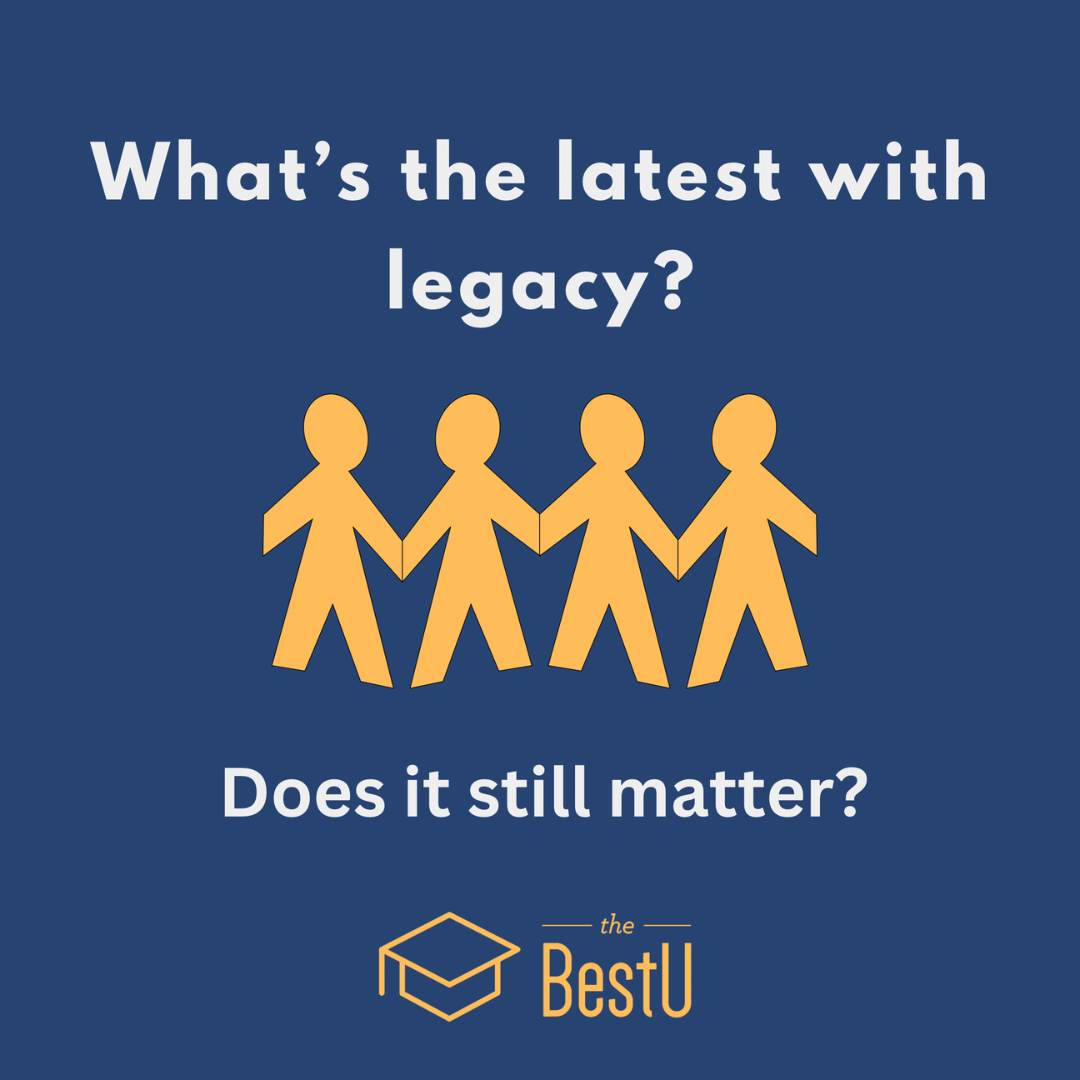
Legacy admissions policies are back in the news. Just this fall, the state of California announced a ban on legacy admissions. This policy change is significant as it is the first in the nation to ban the practice of considering an applicant’s familial history at both public and private colleges and universities.
Wondering if legacy still matters and how the practice might impact admissions? Read on for what you should know…
Which states have laws against legacy admissions?
In 2021, Colorado became the first state in the country to ban legacy admissions at their public institutions. More recently, Virginia, Maryland, and Illinois passed similar legislation. These laws apply only to public institutions; and while legislatures in Connecticut and Massachusetts have discussed such policies, California is the first, and currently, only state to ban the practice across all public and private institutions. Though other state and even federal legislators have raised the possibility of future legislation, private colleges and universities are a powerful force in challenging such laws as the practice boosts alumni giving that supports private college endowments.
How common is legacy preference in admissions?
According to self-reported and survey data, there are over 550 colleges and universities that still consider a student’s familial connection to their alma mater in the decision process. Though that sounds like a lot, they represent only a portion of all of the colleges and universities across the country. For students focused on the most selective colleges, legacy consideration remains a common practice at most schools.
How can legacy preference impact me?
Legacy continues to play a significant role at the ivies and in many highly selective schools. These colleges have different criteria for which familial relationships they will consider, with some holding policies that widely consider any familial connection, to others that limit consideration only to immediate family such as parents, siblings, and sometimes grandparents. Even then, some colleges will consider ‘legacy status’ as only pertaining to graduates of the undergraduate school, and familial connections to graduate schools of medicine, law, business and other fields do not qualify for consideration. If you are curious about a prospective college’s policy, check out their website and seek out the information they provide about how they define legacy relationships.
Most important to know for anyone who is not boosted by a legacy connection, legacy consideration can skew a college’s admissions data, particularly in Early Decision pools. Many colleges that do consider legacy status will encourage those applicants to apply under the early decision, restricted early action, or single choice early action policy for their best opportunity for consideration. This is a way for a student to communicate a serious intent to enroll, and gives admissions officers the room to weigh legacy in the decision process. As a result, the significantly higher acceptance rates for ED admissions can be inflated by the presence of legacy candidates. This is important to keep in mind as students and families evaluate how their likelihood of admissions changes by pursuing this admissions pathway.
TBU Advisors are experienced in supporting students to navigate their college choices and personal best fit, and TBU Essay & Application specialists are experts at supporting students to craft their most compelling, authentic work. If you’d like to explore working with a TBU Advisor, now is the time. Get in touch here and we will look forward to connecting with you.
Looking for more insights like these? Join us on our Membership Platform for exclusive content, live webinars, and the resources and tools to unstick your college process. Not yet a member? Use code TBUWELCOME at checkout to receive your first month of TBU Membership free. Click here to join us
